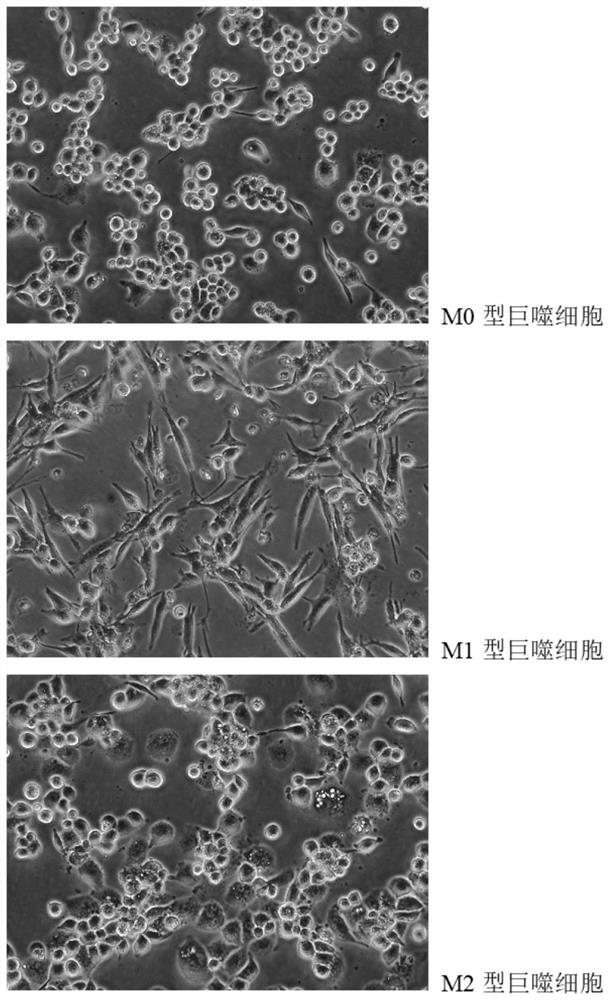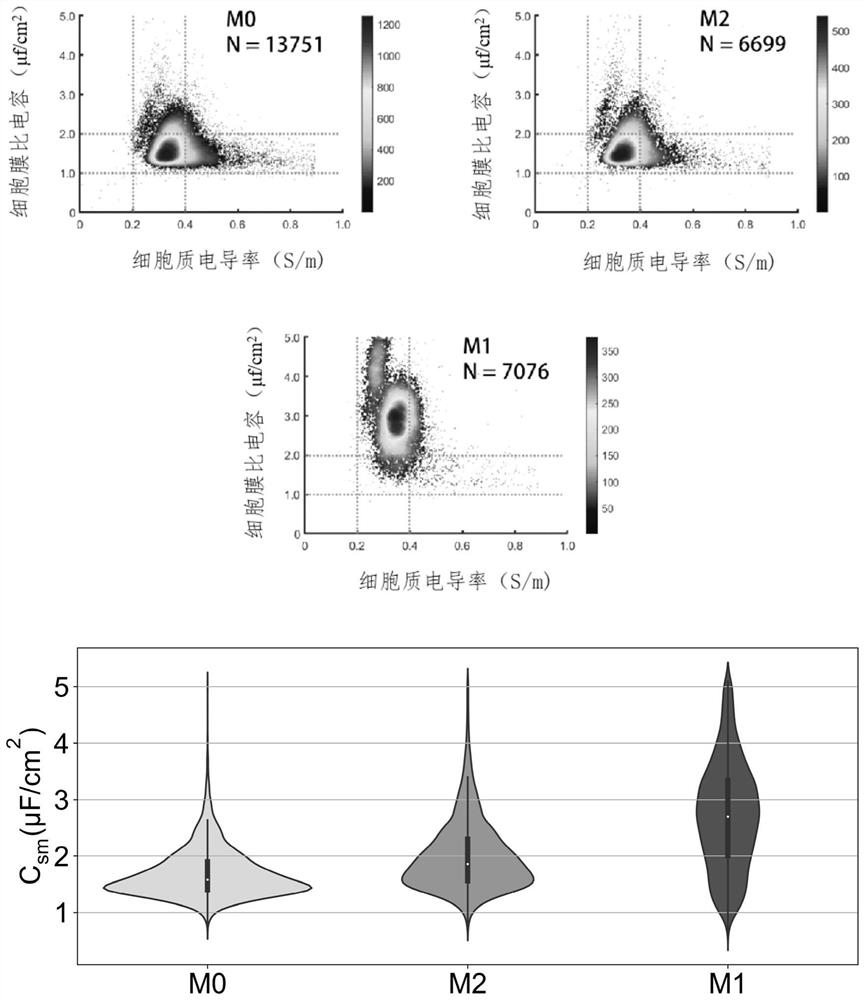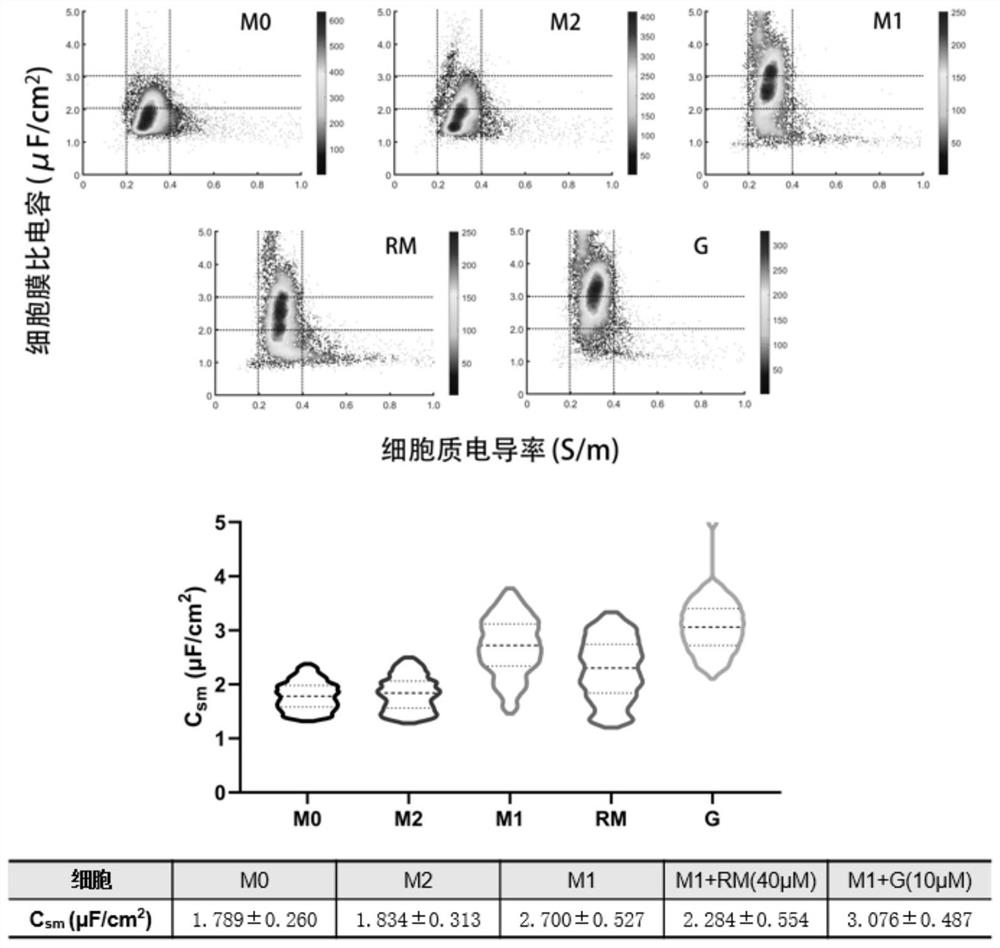Identification method and application of M1 type macrophages
A macrophage and identification method technology, applied in the field of cell detection and typing, can solve the problems of insufficient index specificity, time-consuming, difficult clinical transformation, etc., and achieve the effect of high sensitivity and specificity
- Summary
- Abstract
- Description
- Claims
- Application Information
AI Technical Summary
Problems solved by technology
Method used
Image
Examples
Embodiment 1
[0037] This example is used to illustrate the typing and identification of macrophages, especially M1 type macrophages, by the identification method of the present invention.
[0038] 1. Induction, culture and collection of M0, M1 and M2 macrophages
[0039] Day0: (1) Take two six-well plates and prepare to culture 6-well cells, with two wells each for M0, M1, and M2. Add 1mL of cell culture solution to each well; (2) Take the cells in the culture flask that have been cultured for three days and prepare to subculture, and the cell concentration is about 10 6 cells / mL, add 1 mL of cell suspension to each well; (3) take pictures in a biological safety cabinet (20x, phase contrast mode); (4) add 2 μL of 100 μg / mL PMA to each well (final concentration 100 ng / mL); Induction for 2 days.
[0040] Day2: (1) Take pictures in the biological safety cabinet (20x, phase contrast mode); (2) Replace each well with 2 mL of culture medium; (3) M1 2 wells + 2 μL 100 μg / mL LPS (final concentra...
Embodiment 2
[0050] This example is used to illustrate the typing and identification of macrophages, especially M1 type macrophages, by the identification method of the present invention.
[0051] 1. Induction of M0, M1, and M2 macrophage cells, and intervention with inhibitors of M1 macrophages and agonists of M1 macrophages, cultured and collected.
PUM
 Login to View More
Login to View More Abstract
Description
Claims
Application Information
 Login to View More
Login to View More - R&D
- Intellectual Property
- Life Sciences
- Materials
- Tech Scout
- Unparalleled Data Quality
- Higher Quality Content
- 60% Fewer Hallucinations
Browse by: Latest US Patents, China's latest patents, Technical Efficacy Thesaurus, Application Domain, Technology Topic, Popular Technical Reports.
© 2025 PatSnap. All rights reserved.Legal|Privacy policy|Modern Slavery Act Transparency Statement|Sitemap|About US| Contact US: help@patsnap.com



